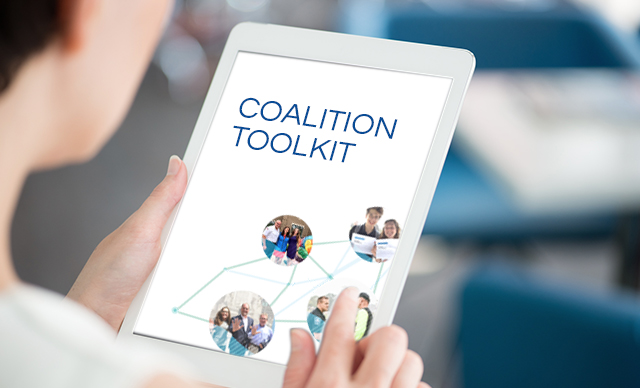Inter-faith collaboration is invaluable when building a coalition. Connecting faith leaders and their communities with resources to address challenges breaks down barriers and opens the conversation to help serve people who might be suffering in silence.
Faith Leaders in the Coalition
What role they play:
The inter-faith coalition works with the city and other coalition members to offer these resources to their own communities. When talking openly about mental wellness within their own communities, it helps normalize those challenges and encourages people who might not otherwise seek out support.
Why they are integral to the Coalition’s success:
Faith leaders bring the conversation to a place of healing and support which has been a powerful part of the coalition as a whole.
The impact they’ve had:
We have seen an increase of openness and support not only within our faith communities but throughout the community at large. Members have taken this initiative and made it their own, looking for ways to help people in need and taking it upon themselves to help any way they can.


“I think the beauty in it is that our whole community is engaged in this conversation. It’s not just one segment. We live in a beautifully rich and diverse community and we really need all parts of that to feel like a part of the community, part of the conversation, and that may look different between faith communities, but we all learn from each other. ”
KEVIN ROTH | CAMPUS PASTOR – GRACE CHURCH FISHERS
Get Resources for Inter-Faith Leaders
Your Specialized Toolkit
Our faith leaders and coalition members compiled their resources, programs, literature, and more. You can start with these guides and build your own faith leadership plan as part of your mental wellness initiative.
Included in your toolkit:
- Faith and Mental Health Conference Flyer
- Interfaith Mental Health Coalition Brochure
- Interfaith Coalition Meeting Minutes

Quick Tips
From Faith Leaders

Work Together
It's not an easy topic. It’s challenging, it’s difficult. Don’t get discouraged when you hit road bumps and obstacles. That’s why it's important not to do this alone. Without a community of faith leaders, leaders in the schools and the city, I think it would have been easy to get frustrated and give up.

Don't Get Discouraged
Don’t get frustrated if it takes longer and the path is a little more challenging than you think it is. Keep a long-term focus on mental wellness and continue to persevere. You will see results.

Start The Conversation
Start the conversation. As we started the conversation here at Grace, one of the things we realized is there are a lot of people passionate about this, a lot of people have training, and a lot of people who have struggled and a lot of those stories started to come out.
Ready to Take the Next Step?
Learn how you can work with a coalition
A faith community can do a lot because our communities trust faith leaders. It's not only in one community but in many communities. We need to start a dialog so we can make people comfortable and open and this is where faith organizations can address the challenges directly.















